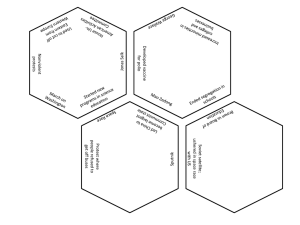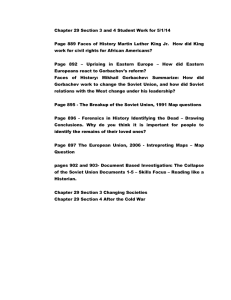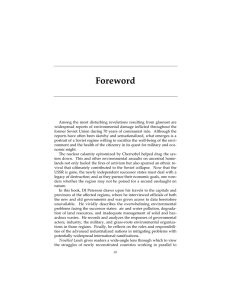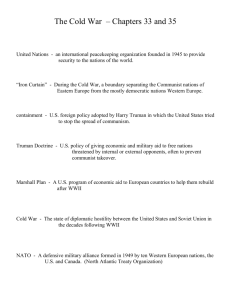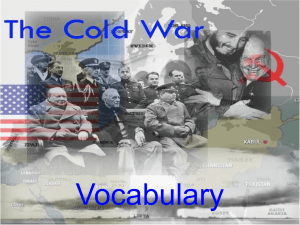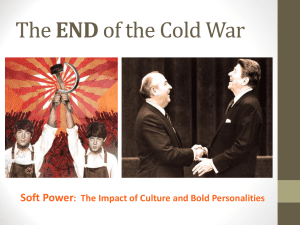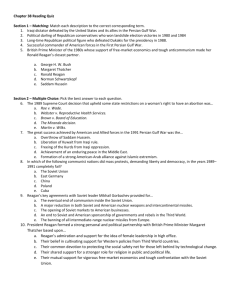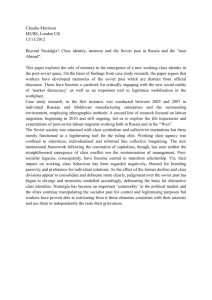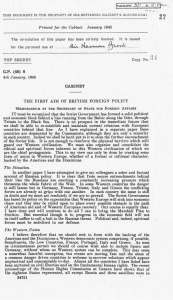Topic Assignment
advertisement
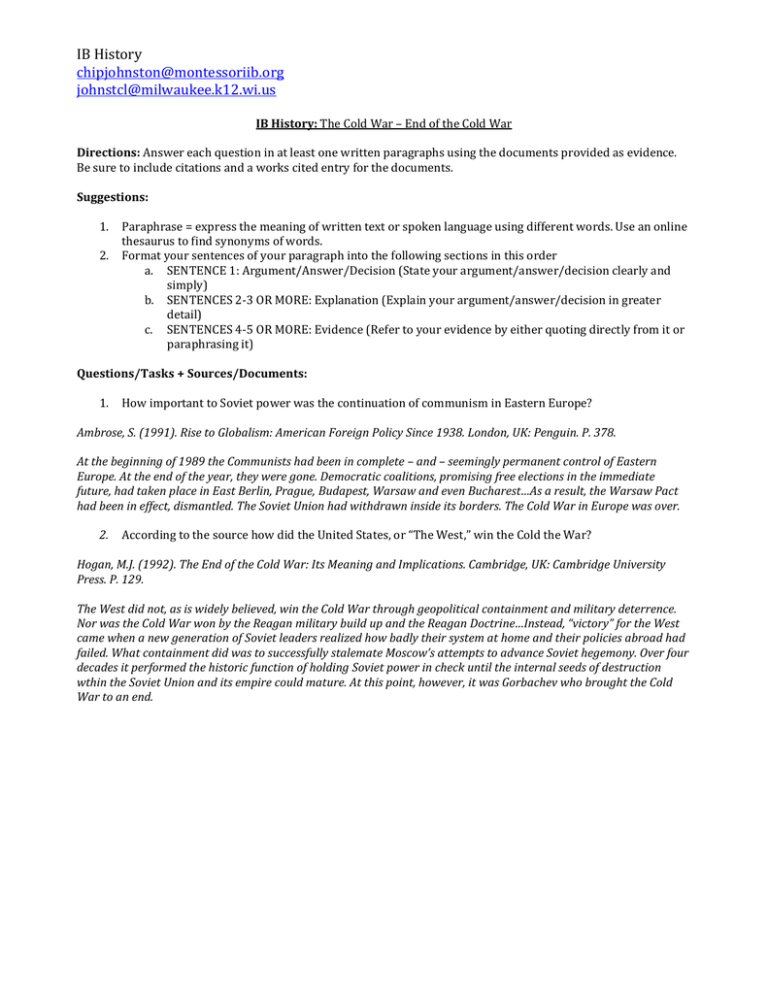
IB History chipjohnston@montessoriib.org johnstcl@milwaukee.k12.wi.us IB History: The Cold War – End of the Cold War Directions: Answer each question in at least one written paragraphs using the documents provided as evidence. Be sure to include citations and a works cited entry for the documents. Suggestions: 1. 2. Paraphrase = express the meaning of written text or spoken language using different words. Use an online thesaurus to find synonyms of words. Format your sentences of your paragraph into the following sections in this order a. SENTENCE 1: Argument/Answer/Decision (State your argument/answer/decision clearly and simply) b. SENTENCES 2-3 OR MORE: Explanation (Explain your argument/answer/decision in greater detail) c. SENTENCES 4-5 OR MORE: Evidence (Refer to your evidence by either quoting directly from it or paraphrasing it) Questions/Tasks + Sources/Documents: 1. How important to Soviet power was the continuation of communism in Eastern Europe? Ambrose, S. (1991). Rise to Globalism: American Foreign Policy Since 1938. London, UK: Penguin. P. 378. At the beginning of 1989 the Communists had been in complete – and – seemingly permanent control of Eastern Europe. At the end of the year, they were gone. Democratic coalitions, promising free elections in the immediate future, had taken place in East Berlin, Prague, Budapest, Warsaw and even Bucharest…As a result, the Warsaw Pact had been in effect, dismantled. The Soviet Union had withdrawn inside its borders. The Cold War in Europe was over. 2. According to the source how did the United States, or “The West,” win the Cold the War? Hogan, M.J. (1992). The End of the Cold War: Its Meaning and Implications. Cambridge, UK: Cambridge University Press. P. 129. The West did not, as is widely believed, win the Cold War through geopolitical containment and military deterrence. Nor was the Cold War won by the Reagan military build up and the Reagan Doctrine…Instead, “victory” for the West came when a new generation of Soviet leaders realized how badly their system at home and their policies abroad had failed. What containment did was to successfully stalemate Moscow’s attempts to advance Soviet hegemony. Over four decades it performed the historic function of holding Soviet power in check until the internal seeds of destruction wthin the Soviet Union and its empire could mature. At this point, however, it was Gorbachev who brought the Cold War to an end.

